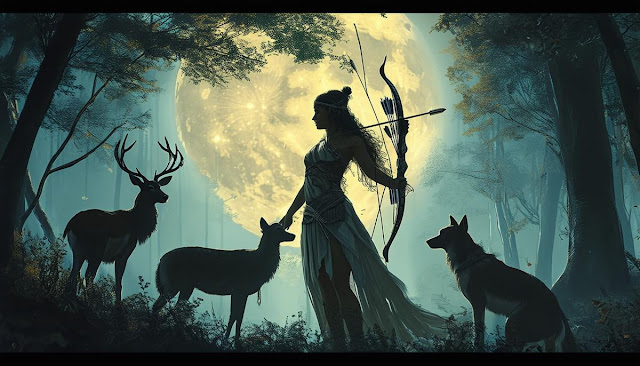The problem of the Gods and the Henads
"On Gods and Henads"
by The Romanist Society
My comment:
"The problem lies in what we can call "God". The abrahamic religions call The One "God", but christianity introduces a plurality with the trinity, which becomes problematic. Hindu philosophies also call it "God", but as Dr. Butler rightly observes, The One does not create, hence it does not fit into our usual idea of "God", which is creative and in relation with creation, but the 'gods' are still dependent on The One. The central problem however, as you've mentioned, is that the gods are simply intelligible-intellectual perceptions of reality. What does this mean? Are they not real? They are inasmuch as there is division in perception and intelligiblity, which leads to the often ignored practice, which even Proclus recognized (P.T. 1:3), which is that when there is found no more division in intelligiblity, and between the gods in the contemplation of their forms, all that is left is the One Being beyond intelligibility. I say ignored, because this is akin to meditation (dhyana), which is not an intelligible-intellectual contemplative practice, but rather an indiscriminative contemplation, which leads to Samadhi, or "state of existence equal-to-itself without distinction", which is Yoga, Union, and Henosis.
Now does all this invalidate the worship of a multitude of gods? The One cannot be worshiped or known either, way, since it admits no duality, no observer and observed. The bridge then lies within us through the duality which comes after the One, namely the One and the Many, which the One Being constains in itself. In the stillness of our being is revealed that bridge and the duality of observer-observed, One and not-one, but as hindu philosophers already stated, the observer (me) is no different than the observed, so where is the duality? It is only apparent, and in that appearance lies the beginning of creation. There is One, and there is another one (in the One) which proceeds, but which can revert back to itself (the One). So the gods become natural and necessary essences, lives and intellects and functions of reality, not unreal in themselves, but merely fragmented aspects which issue fromThe One. They are just as worthy of worship as they are worthy of being recognized as intrinsic parts of ourselves, or as functions from which we participate in the ascent towards a more comprehensive, unified meaning of things. Why would I discard one or another aspect, or god, when they are part of me already? Even I am a unit, comprised of a multitude of units like the gods, and also a simplicity recognized in the silence beyond everything. This may sound too "simplistic", but isn't that what yogis teach, and what Plotinus sought after, and what Proclus meant by the ascent of the Soul? To become "simple"? It's paradoxical I know. Yet if it weren't possible, it wouldn't be mentioned or talked about, and to be honest, there would be no sense of religiosity or transcendence in us, even in and through a multitude of gods."



Comentários
Enviar um comentário